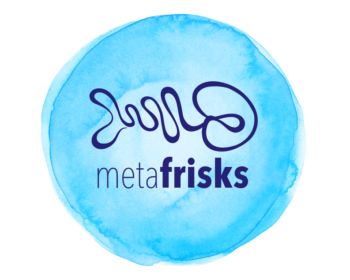Dr Ioanna Kalantzi - Scientific Responsible

Dr Ioanna Kalantzi is the Principal Investigator and Coordinator of the MetaFRisks project. Since 2022, she is an Associate Researcher in the field of “Ecotoxicology, biological effects of pollution and bioaccumulation of metals” at the Hellenic Centre for Marine Research (HCMR) – Institute of Oceanography (IO). She was a post-doctoral researcher at HCMR – IO (2013-2022). She is a Chemist with an MSc in Environmental Sciences and a PhD in Biology. Her main research interests focus on the bioaccumulation, bioavailability and trophic transfer of contaminants, such as metals, elements, POPs, and nanoparticles, in the marine environment and in marine organisms (fish, benthos, plankton), on speciation analysis of metals, on food safety evaluation for humans and on aquaculture ecosystem interactions. To this end, she has focused on the development of quantitative analytical methods for total metal determination and speciation of metals in environmental samples by the use of ICP-MS. She has also participated in numerous oceanographic research campaigns in national and international marine research projects. She has been involved in 21 RTD projects (11 national and 10 EU funded) such as WFD, AQUACOSM, TAPAS, POSEIDOMM, AQUA-NANO, HYPOXIA. She was the Principal Investigator of the JERICO-NEXT Transnational Access to Coastal Observatories (EU) project: ‘Monitoring of Organic Contaminants in the water of the Southern Europe with Passive Sampling’. Results of her work have been published in 28 international peer reviewed journals, and in several conference presentations and posters. Dr Kalantzi coordinates the MetaFrisks project and she is responsible for the implementation of the Work Packages related to the analytical part of the project (WP1); the assessment of the biological, environmental and seasonal effects on elemental speciation (WP2, WP3) and of food safety and nutritional value (WP4). She is also responsible for the dissemination/ exploitation activities, writing of reports and scientific publications, participation in conferences (WP5) and the project management (WP6).
IDs: ORCID, Googlescholar, ResearchGate, Linkedin, Academia
Dr MARGARITA KAPSI
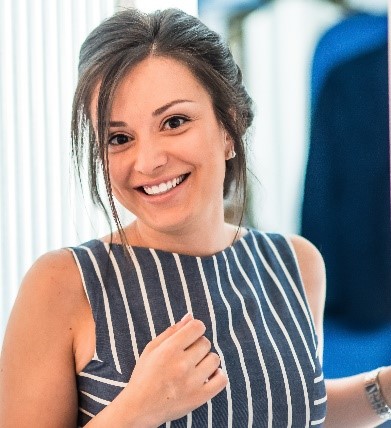
Dr Kapsi Margarita is a technical scientist under contract in the Institute of Oceanography, of the Hellenic Centre for Marine Research (HCMR). She holds a Ph.D in Analytical and Environmental Chemistry (2020). She has a Bachelor of Science in Chemistry (2005-2010) and a Master of Science (2010-2013) in: “Analytical techniques and applications”, with specialization in environmental analytical chemistry, both obtained from University of Ioannina, Greece. She has experience in modern extraction techniques (SPE, SPME, MSPE, QuEChERS and USAE), as well as in chromatography, including gas-liquid chromatography/mass spectrometry (GC-MS and LC-MS) and liquid chromatography-high-resolution Orbitrap mass spectrometry (LTQ-orbitrap-MS). Her area of interest includes method development, optimization, validation, application and determination of toxic micropollutants (pesticides, endocrine disruption compounds, PAHs, PCBs, pharmaceuticals, etc) in environmental substrates (surface water, sediment, animal tissues and wastewater treatment plants etc) using chemometrics tools (Implementation of Experimental Design). Also in Risk Assessment of environmental contaminants. Moreover, she has participated in activities for the determination of the impacts on marine ecosystem, for the implementation of Water Framework Directive. Furthermore, she is author or co-author of 7 scientific papers. In addition, she has ten (10) participations in national-european research projects and more than twenty five (25) participations in European -international conferences. In the MetaFRisks project, she will participate in the determination of metal and metalloid species in environmental and biological matrices (WP1, WP2, WP3), the assessment of human health risks and benefits through fish consumption (WP4), and the writing of scientific articles (WP5).
Georgia Panagou
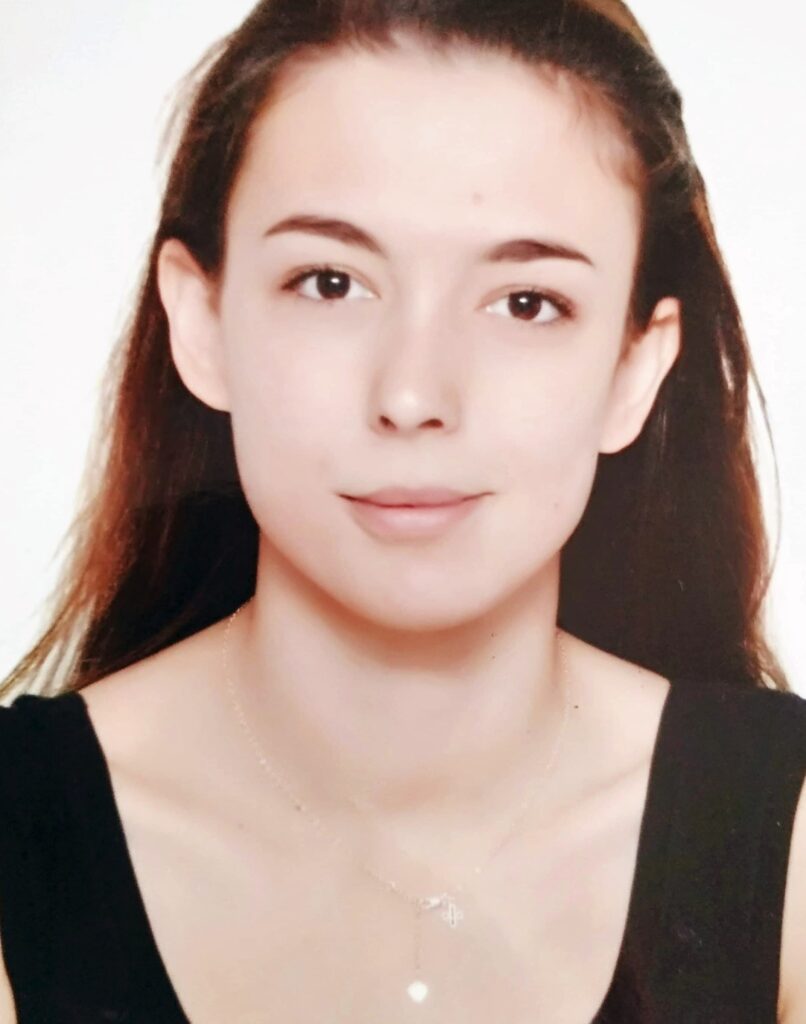
Georgia Panagou holds a Master of Science in Analytical and Environmental Chemistry (2021), which was supported by Onassis Foundation’s Scholarship, and a Bachelor of Science in Chemistry (2019), both obtained from the University of Crete, Greece. She is currently a phD candidate of Chemistry Department in University of Crete and, as a member of the research group of Prof. Spiros A. Pergantis, she is working on method development, based οn liquid chromatography techniques coupled with ICP-MS, for the analysis of metal species in biological samples. Georgia is also familiar with other analytical techniques, such as atomic emission spectroscopy, due to her internship on General Chemical State Laboratory of Greece (2018). In the MetaFRisks project, she will involve in the analytical part of the project (WP1), the samples collection and analysis (WP2, WP3) and the assessment of human health risks and benefits through fish consumption (WP4).
ANASTASIA PERGAMALI

Anastasia Pergamali studied at the Department of Chemistry of the University of Crete in the period 2016-2020 and received her degree in September 2020 with a grade of Very Good (7.06). In 2019-2020 she prepared her dissertation entitled: “Speciation Analysis of Hg and As species in fish with the technique HPLC-ICP-MS” in the laboratory of Analytical Chemistry, in the Department of Environmental Chemistry and Analytical Chemistry, under the supervision of Professor Mr. Pergantis Spyros , at the University of Crete. Then, she started postgraduate studies in September 2020 at the Department of Chemistry of the University of Crete, with the direction of Analytical and Environmental Chemistry, in the laboratory of Analytical and Environmental Chemistry of Prof. Pergantis. The postgraduate studies concern the development of a method of qualitative and quantitative determination for the separation of different species of arsenic (As) and mercury (Hg) in fish. The separation is performed by the technique of high performance liquid chromatography (HPLC) and the further analysis of the different species by the technique of inductively coupled plasma mass spectrometry (ICP-MS). In the MetaFRisks project, she will participate in the determination of metal and metalloid species in environmental and biological matrices (WP1, WP2, WP3) and the assessment of human health risks through fish consumption (WP4).
Chrysovalanto-Maria (Valanto) Drakonaki
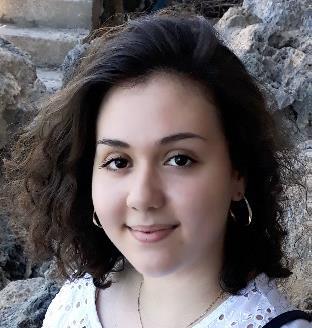
Chrysovalanto-Maria (Valanto) Drakonaki holds a Bachelor’s Degree in Chemistry (2017-2021, Department of Chemistry, University of Crete) and is currently enrolled in a M.Sc. program in Analytical and Environmental Chemistry (University of Crete) as a member of the research group of Prof. Spiros A. Pergantis in collaboration with the Hellenic Centre for Marine Research. She is currently working on the detection and identification of arsenolipids in marine samples using a method of Liquid Chromatography coupled with Mass Spectrometry. In the MetaFRisks project, she will participate in the determination of metal and metalloid species in environmental and biological matrices (WP1, WP2, WP3).
MARIA ELENI KOLIMENOU

Maria Eleni Kolimenou graduated from the Department of Chemistry of the University of Crete in July 2020. In September 2020 she joined the postgraduate program of the Department of Chemistry (University of Crete), majoring in Analytical and Environmental Chemistry. She is a member of Prof. Spiros A. Pergantis’s research team and in her dissertation she was involved in the development of a method for the determination of various forms of manganese (Mn) in drinking water using inductively coupled plasma mass spectrometry (ICP-MS). Her contribution to the MetaFRisks project will be the determination of metallic forms in seawater samples by applying the seaFAST pre-treatment system in combination with the method of inductively coupled plasma mass spectrometry (ICP-MS).
Georgia Panagiotounakou
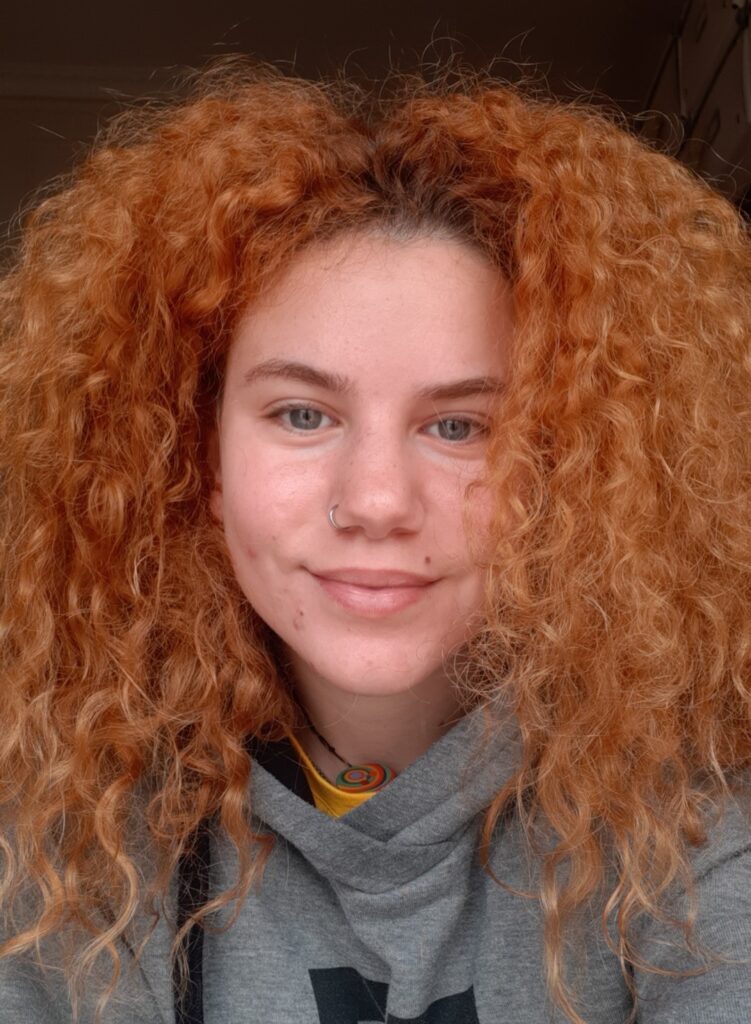
Georgia Panagiotounakou is a senior student in medical laboratories (2019-now, Department of Biomedical sciences, University of West Attica) and is currently doing her dissertation entitled: “Bioaccumulation of metals in red mullet (Mullus barbatus) from Thermaikos Gulf and risk assessment for human health from their consumption”, in the Hellenic Centre for Marine Research (HCMR), under the supervision of Dr Ioanna Kalantzi. In the MetaFRisks project, she will participate in the determination of biological and environmental effects on metal speciation (WP2) and the assessment of human health risks through fish consumption (WP4).
Scientific Advisory Board
Prof. Spiros Pergantis
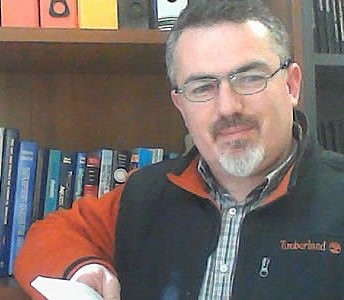
Prof. Spiros A. Pergantis holds a Ph.D in Analytical Environmental Chemistry (1994) and a B.Sc. (1988) in Chemistry from the University of Ioannina, Greece, where he is currently a member of the Environmental Chemical Processes Laboratory (ECPL). His research focuses on the development of advanced analytical chemistry techniques for determining metal and metalloid species, including metal containing nanoparticles, in environmental and biological matrices, and for investigating their interaction with biomolecules. To achieve this a wide range of separation techniques (HPLC, nanoHPLC, ion mobility spectrometry, affinity chromatography) coupled on-line with mass spectrometry (electrospray, sonic-spray ionization, nanoelectrospray, atmospheric pressure chemical ionization, inductively coupled plasma mass spectrometry ICP-MS) are being developed and used. Single particle ICP-MS and single cell ICP-MS are also being developed for nanoparticle and cell analysis, i.e. particle and cell counting and metal determination. As principal investigator (PI) he has gained national, EU and international research funding, which includes a Marie Curie Excellence Grant, PYTHAGORAS II, United States National Research Council Resident Senior Research Associateship Award, HRAKLEITOS II, and SYNERGASIA (Cooperation). He has 109 scientific publications in peer-reviewed journals and an H-index: 294. In the MetaFRisks project, he will consult on the development of advanced analytical chemistry techniques for determining metal and metalloid species in environmental and biological matrices (WP1) and will be involved in the metal speciation analysis of WP2 and WP3.
Dr Manolis Tsapakis

Dr Manolis Tsapakis is Researcher Director (grade A) of Institute of Oceanography at HCMR. He holds a Ph.D in Environmental Organic Chemistry (2003) and a B.Sc. (1993) in Chemistry from the University of Crete, Greece. His work has contributed to the understanding of air-water cycling and long-range transport of persistent organic pollutants (POPs) in the remote eastern Mediterranean and he participates in the AQUAGAPs network studying the global distribution of POPs in the aquatic ecosystems. He heads an active research team working to link the chemical characteristics and transformations of the engineered nanoparticles with the dynamics in the abundance, activity and community structure of the marine pelagic food web. His work also has contributed to developing new methodologies to assess the ecological status of the marine ecosystem. The environmental sustainability of marine aquaculture is also one of his main research activities. His involvement in the MetaFRisks project is related to the analysis of the environmental variables (WP2, WP3), the collection of farmed fish (WP3) and the interpretation of the interaction between environment – fish – metal species (WP2, WP3).
Dr Stylianos Somarakis

Dr Stylianos Somarakis is Research Director in the Institute of Marine Biological Resources and Inland Waters of HCMR since 2008. He was a Lecturer in the Biology Department of the University of Patras from 2002 to 2006 and Assistant Professor in the Biology Department of the University of Crete in 2007. He is an expert on larval fish ecology, fish reproduction and pelagic food webs, with long experience on Mediterranean fish and fisheries. He has participated in more than 50 national and international projects. He was chairman (2005-2008) of the Working Group on small pelagics of the General Fisheries Council for the Mediterranean (GFCM-Scientific Advisory Committee) and Coordinator of the Sub-regional Committee for the Adriatic Sea (SRC-AS/GFCM) in 2016. He is a member of the Scientific Technical and Economic Committee for Fisheries (DG MARE) since 2003. He serves on the Editorial Board of the journals ‘Marine Ecology Progress Series’ and ‘Scientia Marina’ and, currently, he is the Editor-in-chief of ‘Mediterranean Marine Science’. He has contributed more than 100 papers in peer-reviewed journals, 16 book chapters, as well as more than 150 other publications (i.e., conference proceedings, special publications, newspaper and magazine articles). In the MetaFRisks project, he will provide knowledge on wild fish species selection and collection and onboard fish processing (WP2).
Ass. Prof Lambros Kokokiris
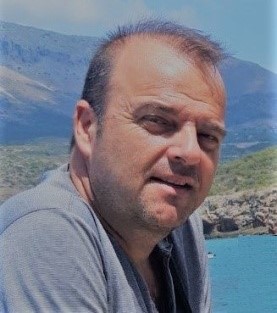
Dr Lambros Ε. Kokokiris is an Associate Professor in aquatic biology and physiology at International Hellenic University (Laboratory of Chemical Biology, Department of Nutritional Sciences and Dietetics). He has extensive experience in aquatic physiology (structural and functioning), especially on fish physiology in intensive aquaculture systems and fisheries. He has been involved as co-ordinator or main researcher in 33 EU and national funded research projects. He has contributed 31 scientific articles in peer reviewed journals and more than 80 other publications. On-going research is related to aquatic physiology, aquatic food products and aquatic food science technology (quality, safety, innovation and technology). In MetaFRisks project, he will participate in wild fish collection (WP2), macronutrient determinations (proteins, lipids) (WP2, WP3) and food safety evaluation (WP4).
Prof. Vassilia J. Sinanoglou

Vassilia J. Sinanoglou is a PhD Chemist from the National and Kapodistrian University of Athens and her present position is a Professor in Instrumental Food Analysis, Laboratory of Chemistry, Analysis & Design of Food Processes, Department of Food Science and Technology, University of West Attica. She is the head of the department since 2016. She has over 25 years undergraduate and postgraduate teaching experience related to Instrumental Food Analysis, Food Analysis, Food Chemistry and General Chemistry. She has over thirty years research experience in (1) instrumental food analysis (chromatography, mass spectrometry, spectroscopy) and development of analytical methods, (2) natural antioxidants extraction from agricultural and industrial residues, (3) analysis of natural products (lipids, antioxidants, vitamins, phenolics, minerals), (4) biomolecular structure identification (phospholipids, triglycerides, phenolics, dipeptides etc.), (5) application of methods for measuring the antioxidant and anti-root activity of natural antioxidants and lipid extracts; (6) study of food irradiation and its effects on food functional components and food quality, (7) organoleptic properties (colour and texture) measurement and (8) the application of statistical analysis to develop models for the classification and monitoring of the nutritional value of food products. She has published more than 66 research articles in international scientific journals and book chapters and more than 130 research articles in international and Hellenic scientific conferences. She is a Referee at thirty-five scientific journals. She was coordinated and participated in 6 research projects. Her involvement in the MetaFRisks project is related to the determination of lipids and fatty acids profile and content in fish (WP2, WP3).
Prof. Smaragdi Antonopoulou

Dr Smaragdi Antonopoulou is Professor in Biochemistry in the School of Health Science and Education, Department of Nutrition-Dietetics, Harokopio University. She was also Vice Rector of Financial Affairs and Development of Harokopio University, Athens until August 2011, Director of the Laboratory “Biology, Biochemistry and Physiology” (2004-2017), Chair of the Department of Nutrition and Dietetics (2004-2008, 2010-2012) and Dean of the School of Health Science & Education (2016-2020). She has extensive experience in lipid metabolism and Platelet- Activating Factor (PAF), biochemical mechanisms of pathophysiological conditions, methods of isolation, purification and identification of lipids from natural sources (biological samples, foods, plants and animals), utilization of olive-oil, wineries and fisheries by-products into high added value products as well as in the relation between Traditionally Greek Diet (usually referred as Mediterranean Diet) and cardiovascular diseases. Her research work is included in more than 120 publications in international peer-reviewed journals (> 2,500 citations, h-index (based on Scopus) = 27), in 7 chapters in international collective volumes, in 3 commentary articles following invitation from the International Atherosclerosis Society website–Nutrition, in 13 publications in Greek scientific journals and in over 200 papers in international and Greek conferences. She participates in 4 National Patents and one International Patent. She has supervised 9 doctoral dissertations, more than 20 diploma theses of postgraduate students, a large number of diploma theses of undergraduate students, as well as 3 postdoctoral researchers. She has also been involved as project coordinator in 14 National and European projects. Her involvement in the MetaFRisks project is related to the assessment of lipids content in fish (WP2, WP3) and the human risk and benefit assessment (WP4).
